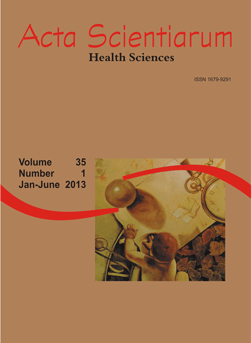<b>Knowledge of the academic community in relation to the functional foods</b> - doi: 10.4025/actascihealthsci.v35i1.10134
Keywords:
nutraceutics, phenolic compounds, grape, university community,
Abstract
Functional foods have physiologically active components capable of promoting health, and nutritional benefits. The grape and its derivatives, due to the compounds with high bioactive potential, especially resveratrol, were chosen as a research subject in the assessment of consumer knowledge regarding functional foods. The study population was the community of three universities in the city of Maringá, Paraná State. A questionnaire was developed and applied to a total of 485 individuals. The food most accepted and consumed was grape juice (51% acceptance), followed by red wine (49% acceptance). The soy drink grape-flavored, food with the lowest popularity has never been tried by 13% of the population interviewed, and 40% never consume this food. Of the interviewees, 48% seemed to be unaware or not sure of the health claims proposed in the questionnaire. This ignorance refers to the relationship of wine and phenolic compounds with positive effects on the blood pressure, osteoporosis, diuresis and depression. Although the interest and curiosity about the functional food, young interviewed still do not know enough about the benefits of functional foods on human health.
Downloads
Download data is not yet available.
Published
2013-03-19
How to Cite
Baptista, I. de C., Genta, T. M. de S., Calderelli, V. A. S., Maurício, A. A., Portilho, M., & Matioli, G. (2013). <b>Knowledge of the academic community in relation to the functional foods</b> - doi: 10.4025/actascihealthsci.v35i1.10134. Acta Scientiarum. Health Sciences, 35(1), 15-21. https://doi.org/10.4025/actascihealthsci.v35i1.10134
Issue
Section
Health Sciences
DECLARATION OF ORIGINALITY AND COPYRIGHTS
I Declare that current article is original and has not been submitted for publication, in part or in whole, to any other national or international journal.
The copyrights belong exclusively to the authors. Published content is licensed under Creative Commons Attribution 4.0 (CC BY 4.0) guidelines, which allows sharing (copy and distribution of the material in any medium or format) and adaptation (remix, transform, and build upon the material) for any purpose, even commercially, under the terms of attribution.
Read this link for further information on how to use CC BY 4.0 properly.























5.png)







